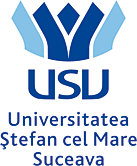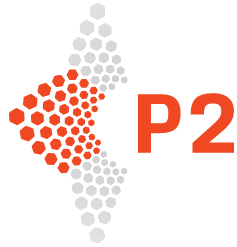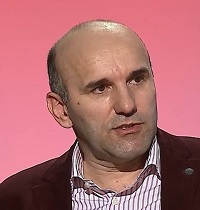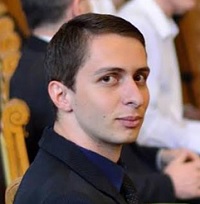-
Cristian Pamparău, Andrei Costea, Răzvan Jurchiș, Radu-Daniel Vatavu, Adrian Opre. (2022).
Experimental Evaluation of Implicit and Explicit Learning of Abstract Regularities Following Socio-Emotional Interactions in Mixed Reality.
Proceedings of DAS'22, the 16th International Conference on Development and Application Systems. IEEE, Washington, D.C., USA, 150-154
We present results from a controlled experiment with N=47 participants conducted in a mixed reality environment
to assess explicit and implicit learning of cognitive structures instantiated by socio-emotional components. To this end, we
implemented a custom version of MR4ISL, the Mixed Reality software tool for Implicit Social Learning, with a task involving
colors, numbers, and emotions. Our results show evidence of explicit learning with participants’ responses being attributed to
conscious response bases, rules, and memory.
PDF |
DOI |
WOS: FORTHCOMING
|
-
Cristian Pamparău, Radu-Daniel Vatavu, Andrei Costea, Răzvan Jurchiș, Adrian Opre. (2021).
XR4ISL: Enabling Psychology Experiments in Extended Reality for Studying the Phenomenon of Implicit Social Learning.
Proceedings of MUM'21, the 20th International Conference on Mobile and Ubiquitous Multimedia (Leuven, Belgium). ACM, New York, NY, USA, 195-197
We present XR4ISL, an XR system designed to support psychology experiments examining Implicit Social Learning,
a fundamental phenomenon that guides human behavior, cognition, and emotion.
We discuss XR4ISL with reference to MR4ISL, a previous system designed for Mixed Reality only,
and reflect on differences between Mixed and Virtual Reality for psychology experiments.
PDF |
DOI |
WOS: 001112164200025 |
ARC B (CORE 2021)
|
-
Cristian Pamparău, Radu-Daniel Vatavu, Andrei Costea, Răzvan Jurchiș, Adrian Opre. (2021).
MR4ISL: A Mixed Reality System for Psychological Experiments Focused on Social Learning and Social Interactions.
Companion of the 2021 ACM SIGCHI Symposium on Engineering Interactive Computing Systems (Virtual Event, Eindhoven, Netherlands). ACM, New York, NY, USA, 26-31
We present MR4ISL (Mixed Reality for Implicit Social Learning), a HoloLens application designed to examine the psychological aspects
involved by implicit social learning, a key process responsible for information acquisition at an unconscious level that influences
humans' behavioral, cognitive, and emotional functioning. We describe the engineering details of MR4ISL, present our roadmap for
identifying technical solutions for believable animations of virtual avatars relevant for implicit social learning, and exemplify use cases
of MR4ISL that emerged from discussions with three researchers from psychology. To date, MR4ISL is the only tool that uses mixed
reality simulations to increase the external validity of psychological research in the study of implicit social learning.
PDF |
DOI
|
-
Cristian Pamparău, Radu-Daniel Vatavu. (2020).
A Research Agenda Is Needed for Designing for the User Experience of Augmented and Mixed Reality: A Position Paper.
Proceedings of MUM '20, the 19th ACM International Conference on Mobile and Ubiquitous Multimedia (Virtual Event, Essen, Germany). ACM, New York, NY, USA, 323-325
With this position paper, we want to draw the attention of the community toward theoretical work and practical opportunities
that have been overlooked so far regarding concepts, principles, and design knowledge for the user experience of Augmented and
Mixed Reality content, I/O devices, interactions, applications, and systems. Despite considerable innovations in commercial products
and research prototypes enabling Augmented and Mixed Reality worlds, how to design great user experiences in such worlds has
been overall neglected at core, while the information and knowledge currently available to practitioners cover usability aspects mostly.
Therefore, we advocate for theoretical foundations of the user experience in Augmented and Mixed Reality and propose several directions for
more scientific research in this regard.
PDF |
DOI |
ARC B (CORE 2021)
|





 Prof. Adrian Opre, Principal Investigator
Prof. Adrian Opre, Principal Investigator
 Prof. Radu-Daniel Vatavu, Co-Principal Investigator
Prof. Radu-Daniel Vatavu, Co-Principal Investigator
 Dr. Răzvan Jurchiș (Psychology)
Dr. Răzvan Jurchiș (Psychology)
 Andrei Costea (PhD candidate in Psychology)
Andrei Costea (PhD candidate in Psychology)
 Cristian Pamparău (PhD candidate in Computer Science)
Cristian Pamparău (PhD candidate in Computer Science)